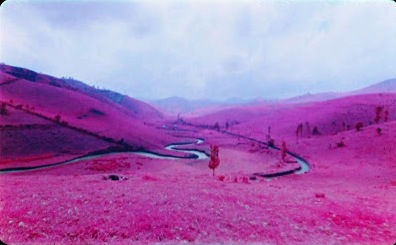
Queer of Colour Geographies
Avant le 16 octobre - Tampa (Floride)
Association of American Geographers Annual Meeting
Tampa, FL, April 8-12, 2014
Session Organizers : May Farrales (University of British Columbia) and John
Paul Catungal (University of Toronto)
Sponsored by : Sexuality and Space Specialty Group
What can attention to space and geography bring to our understandings of
the political and embodied nexus of race and sexuality ? How can
consideration of racialized sexualities and sexualized racializations
reconfigure the fields of geographies of sexualities and queer geographies ?
This session invites interventions and reflections on the geographies of
race, desire, queer bodies, and politics. Over the last two decades, an
uneasy relationship between race and queer theory has produced exciting
scholarship that wrestles with the tendency of queer ways of seeing and
being in the world to reinscribe relations of privilege and oppression,
especially in homonormativities and homonationalisms that are white
supremacist, capitalist, colonial, masculinist and imperialist (Duggan
2002 ; Puar 2007 ; Agathangelou, Bissechis and Spira 2008). Queer of colour
critiques like those of Gloria E. Anzaldúa (1987), Jose Esteban Munoz
(1999), Patrick E Johnson (2001), Martin Manalansan (1995, 2003), and
Gayatri Gopinath (2005) have taken to task the whiteness of queer theory
and politics, centering instead the knowledges, bodies and experiences of
queers of colour. Moreover, queer Indigenous scholarship has brought to
bear on queer theory the politics of settler colonialism (Cannon 1998 ;
Justice et al 2010 ; Driskill et al 2011 ; Morgensen 2011 ; Smith 2010) and
how settler colonial relations remain untroubled in queer and queer of
colour scholarship and politics.
Despite - or perhaps because of - these rich and critical interventions on
racial and queer politics, there remains much room to think specifically
through the geographies of queers of colour and of racialized sexualities.
Work that has been done around queer diasporas, transnationalism and
homonationalism (see Povinelli and Chauncey 1999 ; Puar 2007) offer ways to
center spatial relations or geographies in the relationship between race
and sexuality. Similarly, work at the intersections of sub/urban politics
and queer of colour politics have also highlighted the need to think
through the specific spaces and spatial processes in and through which the
racializations of sexualities and the sexualizations of race literally take
place (Manalansan 2005 ; Haritaworn 2010 ; Tongson 2011 ; Catungal 2013). We
hope to continue to build on these efforts, questions and themes by
showcasing the broadest possible set of works under the rubric of ?queer of
colour geographies ?
In this spirit, we invite theoretical and empirical
papers inspired by, but not limited to, any of the following themes :
. The racial politics of geographies of sexualities. as a subfield
. Queer of colour as theory and method in geography
. The racial geographies of LGBT, queer and ally activisms
. Queer of colour organizing and their geographies
. Queers of colour as bodies and subjects living in the world
. The sexual politics of colonialism and racism
. Geographies of queers of colour and settler colonialism
. Trans and genderqueer people of colour geographies
. The border and the state in queer of colour geographies
. The networked and mobile geographies of queers of colour and of queer of
colour activisms
. Race and the spatialities of heterosexualities and homonormativities
. The queer and racial politics of im/migration
. Race and the queer geographies of sexual health
. Geopolitics, race and global LGBTQ activisms
Expressions of interest and abstract submissions should be directed to the organizers on or before October 16, 2013. Our emails are May Farrales (
farrales@geog.ubc.ca) and JP Catungal (catungalj@geog.utoronto.ca).
Please note that the deadline for early bird registration (i.e., cheaper
fees) is October 23rd. All abstracts are due by December 3rd.
Fichiers de syndication :
Statistiques :
Le site contient 4383 articles
